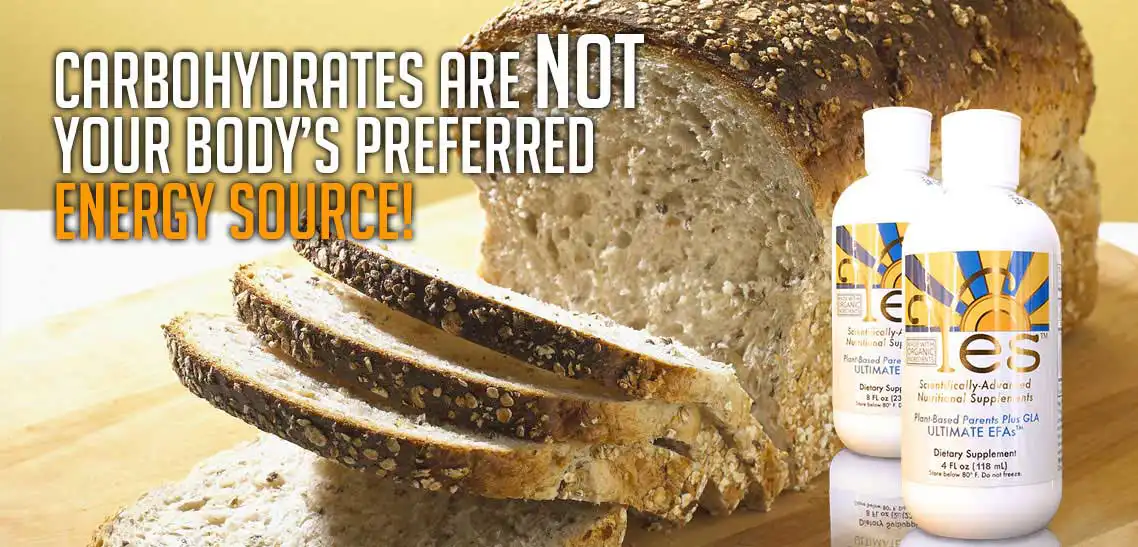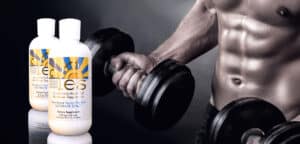Fats: Preferred Body Energy. That’s right. Everyone mistakenly thinks that carbohydrates are your body’s preferred energy source—its number one fuel. This is completely WRONG.
Carbohydrates are NOT Your Body’s Preferred Energy Source!
That’s right. Everyone mistakenly thinks that carbohydrates are your body’s preferred energy source—its number one fuel.This is completely WRONG. In most instances you will never hear the truth about this from any athletic trainer, physician, or nutritionist. This tragic mistake is the primary reason why so many people are overweight.
We have been misled into making the wrong food the basis of our diets. If the people we trust and follow have such a faulty understanding of one of the most basic nutritional concepts, isn’t it time to re-think who we follow?
Here’s what Basic Medical Biochemistry clearly states on pages 358-359:
“The body oxidizes [burns as fuel] more fatty acids each day than any other fuel.
“Fatty acids [fats] are the major fuel in humans. Fats: Preferred Body Energy
Here’s what the Textbook of Medical Physiology (9th edition) states, buried on page 866:
“[A]lmost all the energy requirements of the body can be provided by the oxidation of the transported free fatty acid without using any carbohydrates or proteins for energy.” [Note: This also answers the question of muscle wasting from lack of carbohydrate consumption; it’s another myth.]
[highlight text_color=”#000″ background_color=”#f7c104″ ]These medical textbooks make it crystal clear that carbohydrates are NOT the body’s preferred energy source; your OWN body fat is SUPPOSED to be—but, as you shall soon discover, Nature’s natural mechanism keeping you lean-for-life is being short-circuited.[/highlight]
- How much sugar is in your entire system of 5 quarts of blood? I originally thought it had to be at least 100 teaspoons worth. When I calculated it out, the answer was LESS than 1 teaspoon. That’s right. There is less than 1 teaspoon in your entire system. Medical textbooks verify this fact.
For decades, the average person has unknowingly consumed over 60-70 teaspoons of sugar (in the form of carbohydrates) each day in items such as: juice, oatmeal, fruit, so-called “heart-healthy” cereals, rice, bagels, spaghetti, food bars, etc.
WARNING: Carbohydrate Caution ― They Add Up Fast!
Every 20 calories = 5 grams = 1 teaspoon of sugar. How many fattening teaspoons of sugar are you unknowingly consuming each day?
Insulin, a Response to Carbohydrates, Makes You Fat!
It’s all in the Textbook of Medical Physiology on pages 974-975:
“…[I]nsulin promotes deposition of fat ….
“Insulin promotes glucose transport through the cell membrane into fat cells [making fat cells larger]….
“Therefore, when insulin is not available [caused by the response to carbohydrates], even storage of large amounts of fatty acids transported from the liver in the lipoproteins is almost blocked.
“All aspects of fat breakdown and use for providing energy are greatly enhanced in the absence of insulin [generated from carbohydrates].”
[highlight text_color=”#000″ background_color=”#f7c104″ ]Minimize the insulin production and you AUTOMATICALLY minimize the fat production, too.[/highlight]
- Only 1% of your pancreas is made to treat the carbohydrate (sugar). The remaining 99% of your pancreas digests the protein and fat. Therefore, based on physiology there is no way carbohydrates are designed to be your major food source.
- Eating 6-8 “small meals” a day is extremely harmful because it can turn you diabetic. Your pancreas is made to produce insulin as a response to carbohydrates just 2-3 times a day. Anything more is a harmful overload. Diabetes has become the #1 epidemic in the world with no end in sight. These recommendations make it worse.
- Don’t I need to “balance blood sugars” throughout the day? No. Your body does this automatically, as the medical textbooks make clear. This is another example of more unscientific misinformation.
Insulin, produced mainly as a response to carbohydrates, stops fat-burning and the world’s #1 medical physiology textbook makes it clear: “When no insulin is available [response to carbohydrates]…fats are poorly, if at all synthesized [you don’t get fat]…”
and
- “[A]n excess of carbohydrates in the diet not only acts as a deterrent to fat-burning but also increases the fat in the fat stores [making you fatter].” This is a double negative whammy!
- Carbohydrates make you hungry because of their insulin response. Ask any diabetic when they are the hungriest and it is always when they shoot the most insulin. Everyone knows the old adage, “I’ll bet you can’t eat just one” cookie or potato chip. The more carbs you eat the more you want. This is the direct opposite to eating protein or natural fat like a steak. The more steak I eat, the LESS I want, right? Of course. This proves the fact that Fats: Preferred Body Energy is 100% correct.
- Aren’t there “bad” carbs and “good” carbs? Nope, all carbs are ultimately the same. My standing joke is that a complex carb like organic rice or oatmeal makes you just as fat—merely a few minutes later than a soda or candy bar! That’s right. When the response curves from a complex carbohydrate are studied, the difference is a mere 15 minutes for the sugar to start becoming fat and a few hours later your resting blood sugar is actually higher, putting you on the path to diabetes.SUMMARY: After discovering all of this new science, how could anyone in their right mind ever again think that a high-carbohydrate diet should be used for a bodybuilder requiring peak performance, a highly tuned metabolism, and maximum muscle with minimal fat? No one.
- This is an brief exert from Dr Brian Peskins book The 24-Hour Diet, available at www.brianpeskin.com Every bodybuilder needs this valuable information in their personal library.
MORE CREAT CONTENT:








